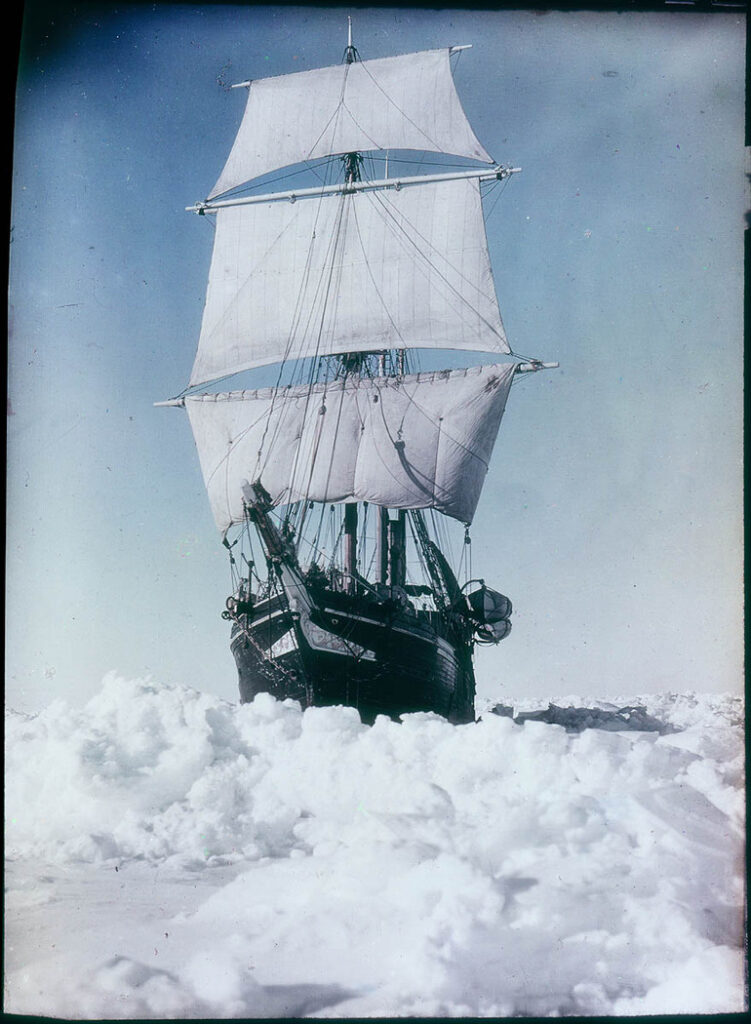
The success of failure
‘A live donkey is better than a dead lion, isn’t it?’-
-Shackleton, to his wife, upon returning from a failed polar expedition.
It’s 1914 and you’re leading an expedition to be the first to cross Antarctica by ship when your vessel gets trapped by pack ice. Months go by and you realise that it’s being gradually crushed and will eventually sink. 28 men and a pack of dogs are looking to you to ensure their survival.
Do you:
- Go into a panic and tell everyone they’re doomed?
- Blame yourself for being a total failure and a terrible leader?
- Calmly order the men off the ship and decide to set out on foot with the dogs dragging the lifeboats to try to get to open water?
Many people might understandably pick a) if not b). In Sir Ernest Shackleton’s case, it was, of course, c) but I’ve often wondered how he managed to maintain his morale and that of his crew.
I’ve always been fascinated by the story of Shackleton. A lot of our heroes in history have celebrated victories and overcome hardships. But, as an artist, what strikes me about Shackleton’s story is the way that he handled constant failure and still emerged victorious. I’ve often wondered how he did that.
When I picture Shackleton watching his ship in the death grip of the ice, I can only imagine he must have been terrified and remorseful. But I also see him staying present, looking at the circumstances head on and being resourceful and confident, keeping up morale for his men, and persevering. I imagine he didn’t waste a lot of time and energy on self-recrimination or blame. He focused on his devotion to his crew and keeping them in good spirits, and to doing whatever he could to keep them alive.
As a coach, I’m interested in how we respond to failure. After all, artists have to deal with it all the time. Not being able to reproduce the artistic vision we have in our minds, not receiving the support and appreciation we so need and deserve, not getting a job in the opera company we’ve longed to work for, not being technically up to speed by the concert date. It’s a minefield, and there are just so many opportunities to judge and berate ourselves that it’s tempting to want to give up and give in.
So it comes down to our attitude. How we respond to failure is the key. Shackleton didn’t just have his boat crushed by ice. When they got to Elephant Island in open lifeboats, frostbitten and starving, it was devoid of life, so Shackleton had to take several of his men on to South Georgia across the roughest seas in the world and climb across snow-covered mountains for three days in shoes with nails driven into them to get the help he needed to rescue everyone.
Maybe it’s time to redefine our mission. Shackleton was lauded as a hero when he returned to the UK, although his intended mission was an abject failure. We now know that what he was trying to do (cross the Antarctic continent by sea) isn’t even possible. Yet, he was celebrated hugely for his tenacity, his devotion to his crew, and his courage in making sure that they all returned safely despite incredible adversity.
What’s your mission? If your aim is to get a particular job and 50 other people also have the same aim, are you a failure if you don’t get it? Many people would say yes. But that’s a recipe for depression and discouragement.
What if a better mission would be to focus on your perseverance, your devotion to your art, and your courage in showing up despite adversity? After all, those are qualities that we all need and the sooner we develop them, the better.
And, to be further provocative, what if who you become in the process is the most important thing?
I’ll end with two quotes by Shackleton:
“The quality I look for most is optimism: especially optimism in the face of reverses and apparent defeat. Optimism is true moral courage.”
“Difficulties are just things to overcome, after all.”